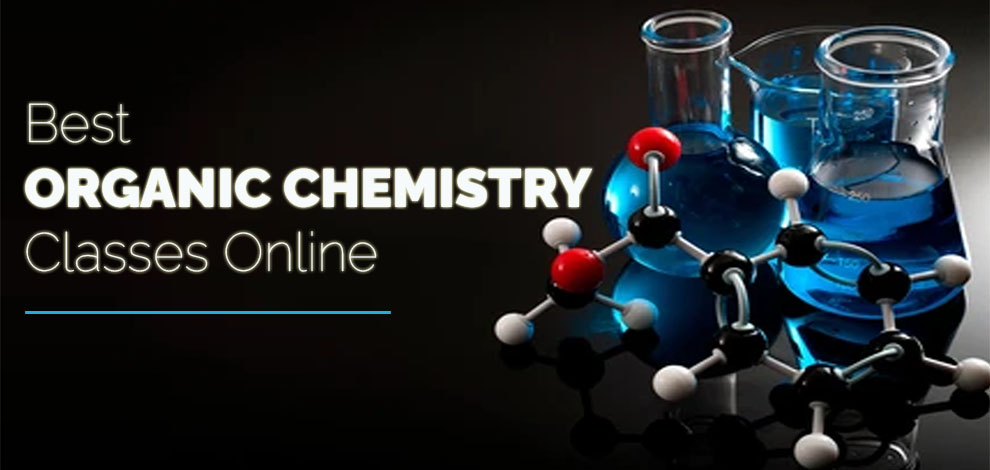We know you are here to know what do you learn in biochemistry class, but before we discuss that, let us briefly discuss biochemistry.
As is apparent, biochemistry is the bridge between biology and chemistry. It clubs together all the sciences to examine physical and chemical processes occurring in a living organism. Hence, it is the science of life. As it is the backbone of several biological processes, we study and practice biochemistry in several fields.
Jump To
- Biochemistry Prerequisites
- What Will You Learn In Biochemistry?
- Branches of Biochemistry
- What Role Do Biochemists Play?
- Why Study Biochemistry?
- FAQs
Knowledge of biochemistry helps us comprehend diverse and complex topics like DNA, evolution, genetics, and diseases. In addition, an understanding of biochemistry helps forensic teams unveil crimes, proves beneficial in the creation of safe and synthetic drugs, equips in the development of food and agriculture, etc.
Hence, biochemistry has a significant impact on our everyday lives. It also justifies the high demand for biochemists amongst employers. Do you also wish to be a biochemist? What do you expect to learn in biochemistry? Continue reading to find out.
What Do You Need to Know For Biochemistry Beforehand?
Before we discuss what do you learn in biochemistry class, you must know there are some prerequisites you must fulfill before you enroll in a biochem course. What are these prerequisites? Read below to find out:
Ideally, the typical route to acquiring a biochemistry-related degree is opting for a balanced mix of A-levels or allied qualifications. So, before you apply to a university course, there are some subjects that you must study at school or high-school level for a good foundation. These include:
1. Chemistry is a vital subject in most institutions for almost all biochem degrees. In chemistry, you will learn the necessary skills for working in a lab. It helps you understand sample concentrations and offers a functional understanding of chemical principles, which form the base of biochemistry.
2. Biology is another necessary subject you should study if you intend to enroll in a biochemistry degree. In biology, you will develop a sound working knowledge of biochemical interactions. In addition, you will get well-acquainted with topics like enzymology, cell biology, and genetics.
Depending on your discipline of specialization, you only build on the base knowledge you acquire during junior studies.
3. Communication subjects like History and English will provide you with necessary skills valued in the scientific community.
4. Mathematics is not a mandatory prerequisite for biochemistry courses. But, do you have a thorough idea of what do you learn in biochemistry? If yes, you may know that you will have to calculate constants, kinetics, and concentrations, which mandates knowledge of mathematics. In addition, you will also work around statistical data, and that also demands basic math skills.
If you do not know what Biochemistry classes entail, you may fail to fulfill the prerequisites.
What if you do not have ample qualifications and knowledge?
Fret not. Some universities offer a Science Foundation Year. You can enroll in it and acquire the necessary qualifications and skills to take up Biochemistry at undergrad levels.
What Will You Learn In Biochemistry?
Here are some subjects and areas covered in a biochem degree:
A. Xenobiotics
In this biochem discipline, you study:
- Metabolic behavior of compounds, sans a proper chemical structure
- Chemical substances foreign to animal life, like plant constituents, drugs, pesticides, cosmetics, flavorings, fragrances, food additives, industrial chemicals, and environmental pollutants
B. Bio-organic chemistry
In this biochemistry area, you study:
- Organic compounds that come from living beings
- Chemical bonding
- Organic molecule structure
- Reaction mechanics
- Bioorganic chemistry
- Molecular interactions
- Biochemical functions
- Organic synthesis
- Secondary and primary metabolic reactions
- Chemical diversity of living beings
- Cell recognition
- Biosynthesis
C. Cell biology
What do you expect to learn in biochemistry’s cell biology lessons? Here’s what:
- Physiology and morphology of eukaryotes and prokaryotes
- Understand the biochemical composition, properties, functions, and structures of the cell, their life cycle, and environmental interaction
- Mechanisms of cell communication
- Intrinsic cellular life processes, like a synthesis of components, cell division, nutrition, defense mechanisms, respiration, and death
- Cell cultures that help with the separation of cell populations
Related: Cell Biology Textbooks
D. Structural biochemistry
What do you learn in biochemistry of structures? In this, you study:
- The chemical architecture of the biological macromolecules
- Determining the protein structure when you only know the amino acid sequence
- Devising the rational design of proteins
E. Metabolic biochemistry
In this, you study:
- Different types of metabolic pathways at the organic and cellular level
- Molecular basis of metabolic diseases
- Cellular biochemical reactions that make life possible
F. Virology
In this, you study:
- All about the viruses – their molecular structure, operation, classification, and reaction
- Variation and combination of viral genomes
- Impact of target vaccines and drugs for prevention and expansion.
G. Enzymology
You choose to specialize in Enzymology, so what do you learn in biochemistry class? In this, you study:
- The behavior of enzymes or biological catalysts
- Functions of coenzymes and cofactors
- Enzymatic regulation and expression
- Reaction kinetics
- Enzymatic activities
- Enzymes-substrate catalytic transition state
- catalytic effects happening in the modification of the elements
H. Bioenergetics
In this, you study:
- Energy flow in living organisms
I. Toxicology
Here, you will study:
- Nature, dosage, incidence, severity, reversibility, and adverse effects of drugs
J. Clinical Biochemistry
In this, you study:
- Modifications in disease states or trauma
K. Nutritional Biochemistry
In this, you study:
- Processes of nutrition-related to metabolic pathway
L. Pharmacology
In pharmacology, you study:
- Substances used to treat, diagnose, prevent, and relieve disease symptoms
M. Immunology
Here are a few prevalent things you study in immunology:
- Organism’s reactions to viruses and bacteria
- Behavioral response after production of antibodies
- Response and immune function of living things
N. Endocrinology
In this, you study:
- About hormones
- The function of cells and tissues secreting hormones
O. Chemical ecology
In this, you study:
- Chemical compounds of biological origin
- Response and production of signaling compounds and molecules that impact the organisms’ reproduction, survival, and growth
P. Neurochemistry
In this, you study:
- Organic molecules involved in neuronal activity
Q. Chemotaxonomy
In this, you learn:
- Identification and classification of bodies as per their demonstrable differences
- Compounds like phospholipids, proteins, peptides, glycosides, alkaloids, and terpenes.
What Are The Branches Of Biochemistry?
There is a vast diversity in biochemistry. It has branches that entail specific objects of study. The replies to what do you learn in biochemistry will significantly depend on the chosen field.
Here is a list of the main biochemistry branches:
Structural biochemistry
It is the branch that deals with life sciences and combines chemistry, physics, and biology to examine living beings and devise shared principles amongst all life forms.
Cellular biochemistry
It focuses on the chemical processes occurring inside the cell. In this, you study how cells use nutrients, store and produce energy, and maintain a structure.
Molecular biochemistry
It studies the structure and the function of macromolecules like nucleic acid and proteins vital for life. As apparent, it deals with the molecular level and tries to understand the formation of essential molecules like RNA, DNA, and protein.
Metabolic biochemistry
You plan to do your major in metabolic biochemistry. So, what do you learn in biochemistry class? It deals with chemical reactions occurring in the body, necessary for life, such as detoxification, nutrient metabolism, and energy production.
Genetic biochemistry
It studies the genes, variations in them, and the heredity characteristics of living beings.
Beyond this, there are other biochemistry branches like
- Plant Biochemistry
- Animal Biochemistry
- Endocrinology
- Genetic Engineering
- Neurochemistry
- Biotechnology
- Nutrition
- Toxicology
- Photosynthesis
- Environmental
- Pharmaceuticals
- And more.
What Do Biochemists Do?
By now, you know what do you learn in biochemistry, so the next big question is, what are the roles and responsibilities of a biochemist? Read below to discover.
- Biophysicists or biochemists study living organisms’ physical and chemical principles and biological processes like disease, heredity, cell development, and growth.
- They devise ways to genetically engineer crops to make them resistant to insects, diseases, and drought.
- They perform research projects, prepare technical reports, manage laboratory teams, and showcase the conclusions to interested parties.
- Biochemists record the effects of different medicines.
- They also work towards sourcing alternate fuels like biofuels from plants.
- Biophysicists study the chemical reactions taking place inside the tissues.
- They analyze the DNA and other molecules to understand the impact of different foods and drugs on biological processes.
- They look for ways to guard the environment and reduce pollution.
- Biochemists plan and perform complicated projects in fundamental and advanced research.
- They employ advanced technologies like fluorescent and laser microscope to perform scientific experiments.
- Biophysicists work towards bettering the quality of life for living organisms at a molecular level.
- They also utilize electron microscopes, other lab equipment, and computer tools to understand molecular structures.
- Biochemists derive samples from plants and animals to understand and perform genetic traits.
- They work with research teams with pros from allied fields like engineering, chemistry, and physics.
- They present their findings to engineers and scientists.
- They write research papers, technical reports, and recommendations, depending on their research findings.
- Biochemists working in a lab manage the team and keep a check on their quality of work.
- They review the findings and literature of other researchers.
- Biophysicists write grant applications to secure funding.
- They employ X-rays and modeling software to comprehend the 3D structures of proteins and other molecules.
- Biophysicists also perform research to understand the working of nerve cells.
- They devise products or processes to better people’s lives.
- They develop new medications and drugs like those used to treat Alzheimer’s Disease and Cancer.
- People with a background in biochemistry become educators in schools and colleges.
By now, we have covered:
- Biochemistry Prerequisites
- What do you learn in biochemistry class?
- Biochemistry branches
- Roles and responsibilities of a biochemist
So, now, we will take this forward and discuss the advantages of studying biochemistry.
What Are The Benefits of Studying Biochemistry?
You know biochemistry has a diverse use, but as a student learner, what are some advantages of studying biochemistry?
It helps understand the molecular basis of life.
There are so many challenges and problems existing in the world today. So, if you understand the working of life and the systems within it, it is easier to find solutions to these concerns. Your knowledge of biochemistry provides you with an understanding of life’s structural and molecular basis and devise ways to overcome challenges.
Specialization
Your knowledge of biochemistry finds use in an array of fields and specializations. So, you have a vast number of options to choose from. Hence, depending on your background and knowledge, you can decide whether you wish to continue your research and education in a specified area or be an active part of the industry.
For specialism, you can also combine your present biochemistry knowledge with other biomolecular courses to get proficient in your degree. Some programs you can opt for are pharmacology, microbiology, and immunology.
Innovation
Knowledge of biochemistry makes it easier for you to comprehend the working of different systems and devise newer ideas. It is a vital skill in work and life and makes you more bankable. When you know how to see things from a different perspective, the number of job opportunities only increases further. Hence, it equips you with the skill of bringing improvements in your chosen field.
Career opportunities
When you complete your study in biochemistry, you have multiple hiring opportunities. So, if you do not know which one suits your needs, consider working in forensics, healthcare, product development, and research lab.
Transferrable skills
Regardless of your chosen career, biochemistry teaches you some top skills like process creation, data analysis, project management, and problem-solving. It opens up more job opportunities for you with the transferrable skills you possess. Of course, biochemists work in labs, but they can also get employed in education, business, and finance.
Related: What can you do with a Biochemistry degree? | Best Biochemistry textbooks,How to make money with a Biochemistry degree?
Frequently Asked Questions
Ques 1. How do I know if Biochemistry is the right course for me?
Ans. Now that you know what do you learn in biochemistry, you must have figured that what all topics will you study under this domain. So, we say you go for a Biochemistry course, if:
- You have a curious mind
- An interest in studying different chemical processes
- A willingness to take up a career in this field
- An ability to devise new things
Ques 2. Why do we study biochemistry in pharmacy?
Ans. Here is what do you expect to learn in biochemistry in a pharmacy course – it studies vital insights into various medications and drugs. This will further help you in drug identification, interaction, and development.
Ques 3. Is math mandatory for a Biochemistry course?
Ans. Math is not a mandatory prerequisite for biochemistry courses. But, in several biochemistry areas, you will have to calculate constants, kinetics, and concentrations, which mandates knowledge of mathematics. In addition, you will also work around statistical data, and that also demands basic math skills.
Ques 4. Are there any biochemistry learning websites and online courses?
Ans. Yes, there are! You can find some of the top online Biochemistry courses recommended by experts based on their offerings here. These classes teach you everything what do you learn in biochemistry in-person course.





